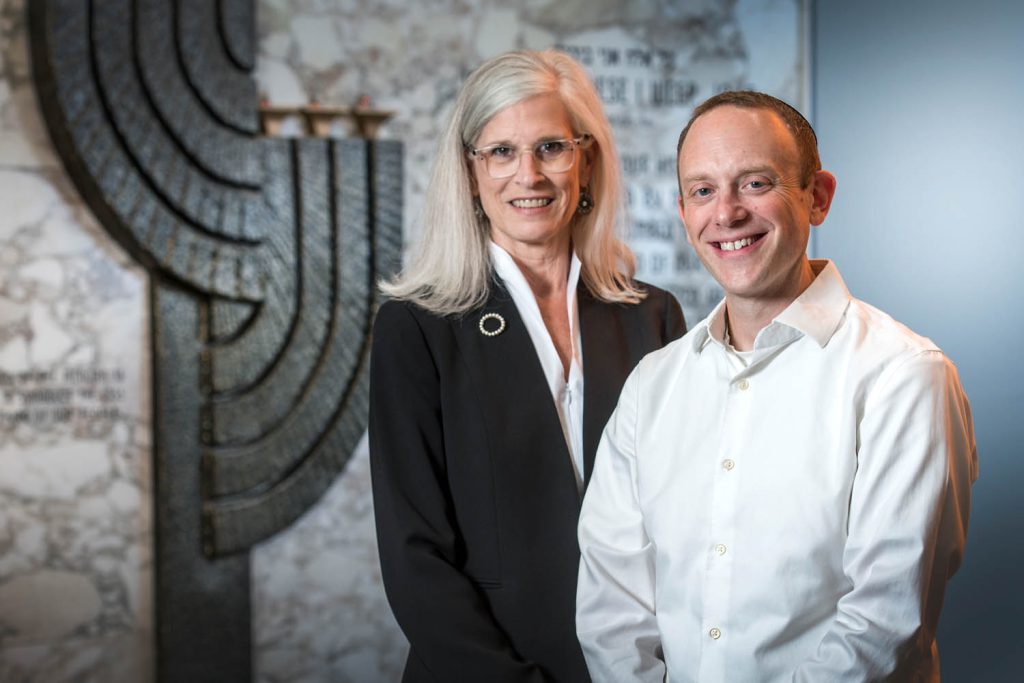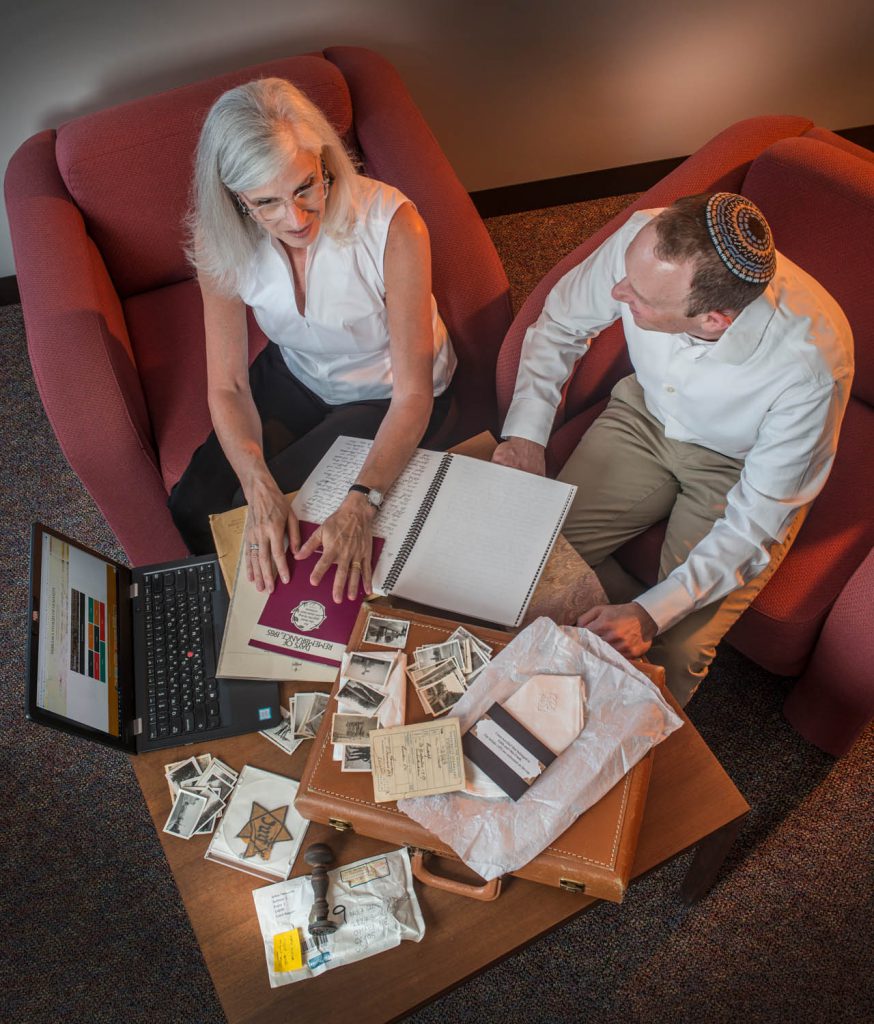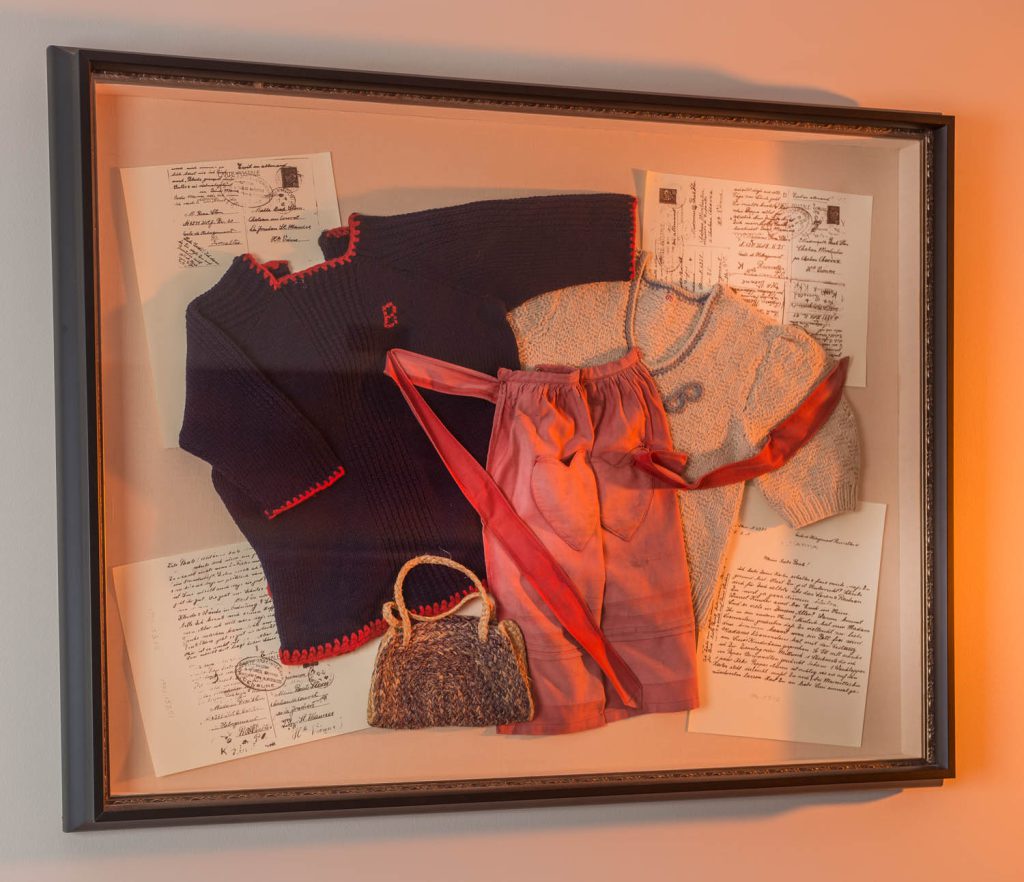
Preserving Holocaust Survivors’ Memories
“It is the ordinary people that we must convince of the necessity – the obligation to remember the Holocaust,” wrote Irving Shapiro of Gering, Nebraska. His family’s lone Holocaust survivor, Shapiro understood the importance of telling his painful story.
To preserve Shapiro’s and other survivors’ memories, UNL developed the website Nebraska Stories of Humanity: Holocaust Survivors and World War II Veterans, a digital collection of historical documentation and memorabilia.
The multidisciplinary digital humanities project records the experiences of Holocaust survivors who made Nebraska home as well as Nebraskans who helped liberate the concentration camps.

As the number of living survivors dwindles, the website is a valuable learning tool for future generations. It features searchable letters, documents, photos, interactive maps and other artifacts.
“The disparate materials highlight the stories of people who were our neighbors. They weren’t just Holocaust survivors. They were people who made lots of contributions as refugees and immigrants in Nebraska,” said project leader Beth Dotan, a doctoral candidate in the Department of Teaching, Learning and Teacher Education.
Personal narratives draw people into the experience and provide insight into the genocide’s legacy, said project co-leader Ari Kohen, Schlesinger Professor of Social Justice and director of the Norman and Bernice Harris Center for Judaic Studies.
“It’s important to teach not simply the historical event, but the lessons that grew out of the Holocaust: lessons on tolerance, lessons in the opposition to bigotry and xenophobia, lessons about the enduring nature of antisemitism,” Kohen said.
The website includes stories of five survivors and liberators, with additional stories planned. In collaboration with the Center for Digital Research in the Humanities and University Libraries, Dotan and her team enlisted Husker students to help scan, organize and encode nearly 900 items.


The website launched soon after Nebraska passed legislation requiring schools to teach about the Holocaust and other genocides. To support teachers, Dotan is working with the Nebraska Department of Education to incorporate educational components into the website.
The project has already generated international interest. Dotan anticipates the website will become a model for others and eventually will link to a worldwide network of sites. Numerous community organizations and foundations support the project.
+ Additional content for Preserving Holocaust Survivors’ Memories
Nebraska news release: Digital project captures Nebraska’s Holocaust stories
Website: Nebraska Stories of Humanity: Holocaust Survivors and World War II Veterans
